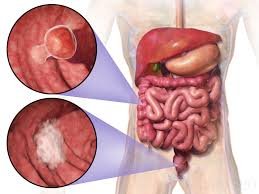Researchers identify new biomarker for colorectal cancers
January 09, 2019 | Wednesday | News
Scientists also observed an increase in the protein's activity and in its product lactosylceramide, a fat that can produce superoxides, which lead to an increase in new cells and blood vessels that cancers can use to spread throughout the body.
A recent study sees John Hopkins researchers identifying a protein involved in cell proliferation and the development of new blood vessels that could serve as a marker for the early detection of colorectal cancers.
These results of the study were published online in the journal Biochemical and Biophysical Research Communications.
According to the laboratory studies, investigators found that expression of the protein called beta-1,4 galactosyltransferase-V (beta-1,4-GalT-V), was increased in human colorectal cancer tumor cells compared with normal tissue.
Scientists also observed an increase in the protein's activity and in its product lactosylceramide, a fat that can produce superoxides, which lead to an increase in new cells and blood vessels that cancers can use to spread throughout the body.
According to lead author of the study Subroto B Chatterjee, professor of perdiatrics and a specialist in vascular biology at the John Hopkins University School of Medicine, the findings demonstrate that lactosylceramide could be added to a growing list of biomarkers such as NMT1, APC and TP53 in blood tests for colorectal or potentially other cancers to increase their success at early detection of disease.
According to the researchers colorectal cancer affects more than 1.4 million people worldwide and causes almost 7 lakh deaths over the world. The lead author further opined that colonoscopies usually don't begin until a person turns 50. According to Chatterjee there is a great need for reliable biomarkers for early-stage diagnosis of colorectal cancer.









